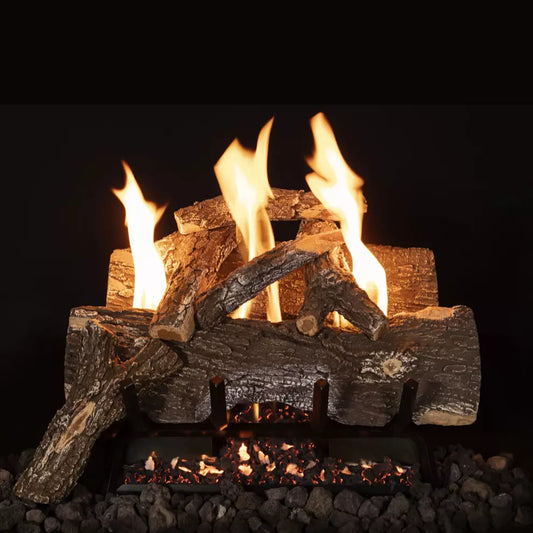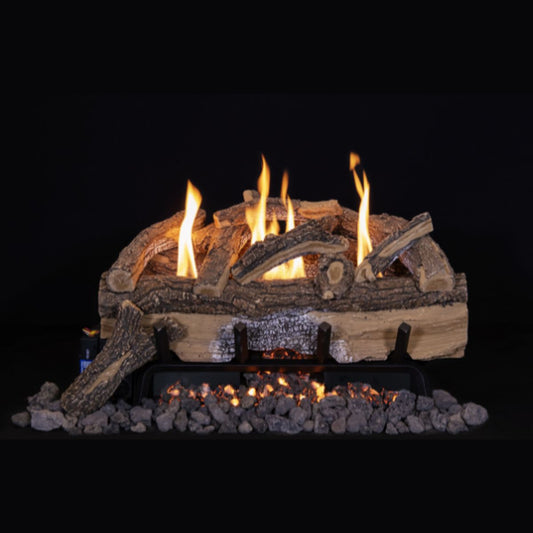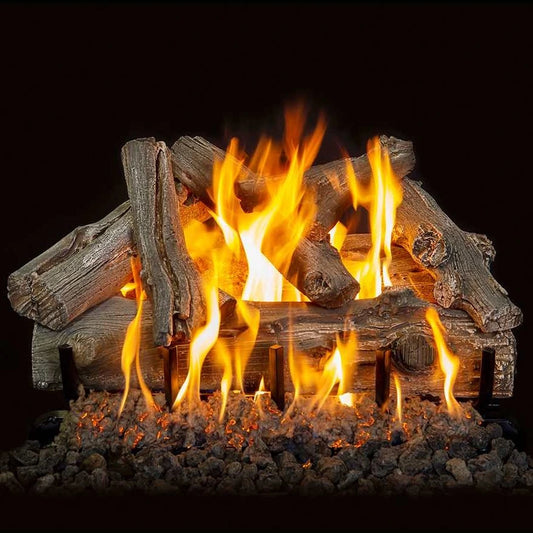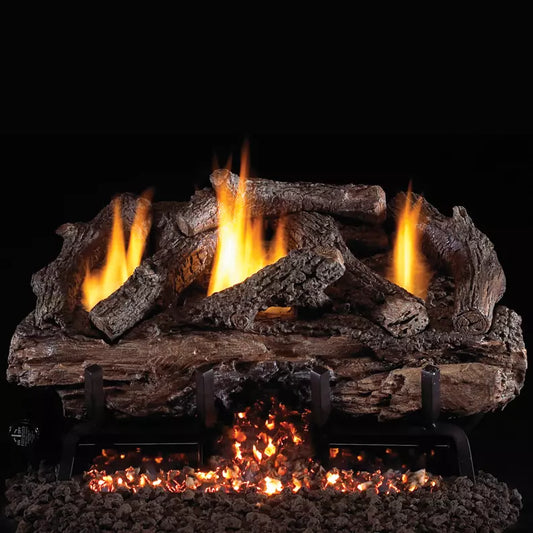Did you know that adding a fireplace to a home is one of the most surefire ways to increase your home´s value? According to a 2016 poll, around 70 percent of real estate agents stated that fireplaces were a value-add from their home-selling experience. Additionally, more than three-quarters (77 percent) of homebuyers claimed that were willing to pay more for a home with a fireplace. Though a traditional wood fireplace might have nostalgic charm, the vast majority of homeowners today prefer the ease, the safety, and the improved air quality that comes with either gas or electric fireplaces. For homeowners considering a gas fireplace for their new or existing home, choosing the best gas log is one of the most important elements to take into consideration. Below, we outline everything you need to know in order to choose the right gas log for your home fireplace setup.
Vented versus Vent-Free Gas Logs
First and foremost, it is important to comprehend and appreciate the differences between the different venting options for gas fireplaces. There are both pros and cons that come with vented and vent-free gas fireplaces, which we will explain here.
Pros and Cons of Vented Gas Logs
Vented gas logs generally are able to best mimic the natural allure of a wood fireplace. The flame produced by the vented gas log can be almost indistinguishable from a traditional wood hearth. Another benefit is that a vented gas log can be installed in an existing wood burning fireplace, which makes it easy and affordable to transition from wood to gas. In terms of heat output, a quality vented gas log can deliver similar amount of BTUs via radiant heat into the room as wood burning devices, though this will be significantly less than most vent-free gas logs. On the downside, some vented gas logs may produce soot when the flame touches the log. Furthermore, if your chimney, flue, or vent is not properly sealed, this could reduce the energy efficiency and thermal performance of your home.
Pros and Cons of Vent-Free Gas Logs
With a vent-free gas log, the most obvious advantage is that more heat will be delivered into your home. The increased heating efficiency can help to reduce your energy bill as a quality alternative/supplemental heat source. However, improper setup and combustion of a vent-free gas log could lead to serious dangers for your indoor air quality, including the unwanted buildup of carbon dioxide and carbon monoxide. Because of this, some state and local building codes may either not allow, or have strict regulations on how vent-free gas logs are to be installed.
Other Important Considerations for Choosing the Best Gas Log
Once you have settled on a vented or vent-free gas log, there are a few other items you need to take into consideration, including:
- Best Size for your Gas Log: This decision will help improve the aesthetics of your home interior. To determine the best size for your gas log, you should carefully the width, depth, and height of your fireplace and choose accordingly.
- Starter Mechanism for your Gas Log: With gas log you can either choose match lighting, a manual safety pilot option, or more modern remote controlled systems. Match lighting systems will generally be cheaper, though they only work with natural gas. A manual safety pilot system has a permanent standing pilot, though you will still need to manually turn the fireplace on and off via a knob. Remote control systems may be a bit more expensive, but will give you an easy way to control your fire including on/off control, and the ability to control the flame height.
- Other Accessories: Most gas logs today allow you to “customize” your gas fireplace so that it fits with your home interior. There are several different accessories to choose from offering improved heating efficiency and different aesthetic upgrades.
- Choose your gas Type: Lastly, you will also need to choose between natural gas and liquid propane gas logs. These are the two main fuel types, and in most cases you will opt for the type of gas that is already connected to your home. If you don’t have an existing gas line, it is usually best to ask local builders and contractors which type of fuel is most abundant and affordable in your region.
Installing a gas log in your home can offer a unique supplemental source of heat while also improving your home´s value. The considerations listed above will ensure that you choose the best gas log for your home.














